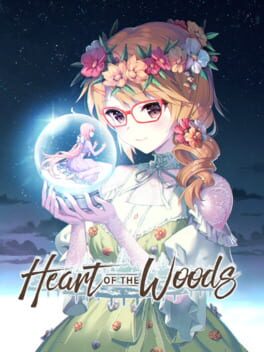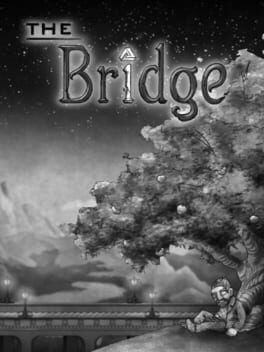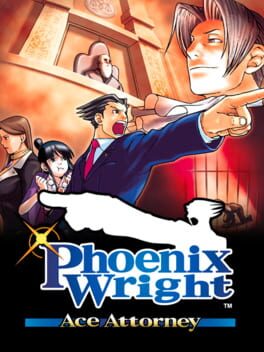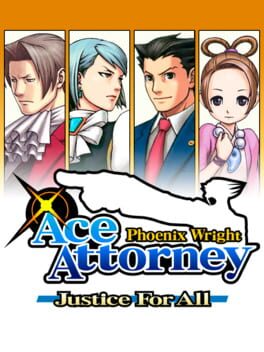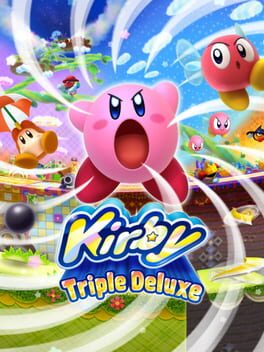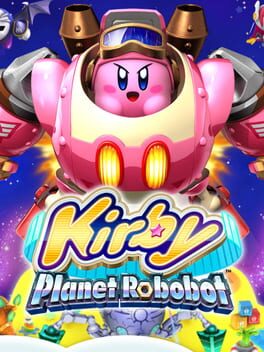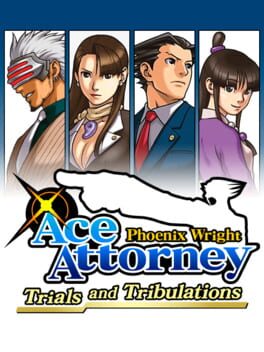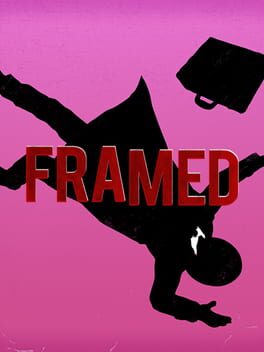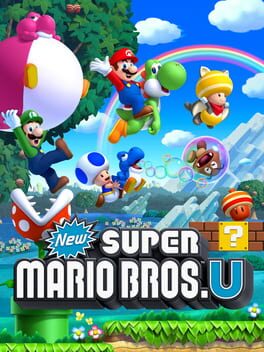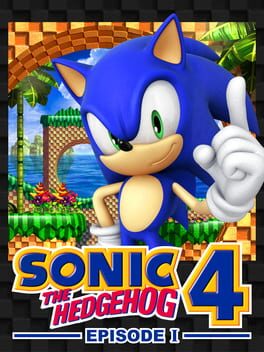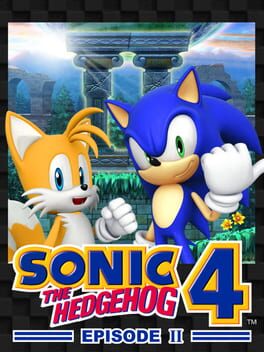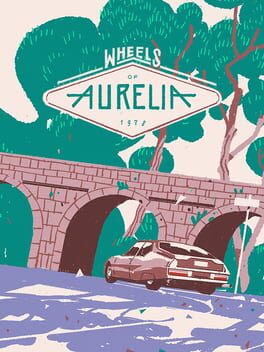Grammarhead
2021
After Metroid Dread was announced, I figured now was a perfect time to try this series for the first time. I played through Super Metroid and Metroid Fusion before buying Dread on release day. I can safely say that Metroid Dread is my favourite of the three.
I know many of these were introduced earlier in Samus Returns, but the quality-of-life improvements here are lifesavers. The ability to aim in any direction, far simpler controls for abilities like the wall jump and space jump, map markers, a more robust map in general, more generous respawn points for bosses and the like - they addressed so many little problems I had with the earlier titles. Not to mention the satisfying melee counter, which adds much-appreciated spice to regular enemy encounters and boss battles alike.
I'm a little mixed on the E.M.M.I. sections, where you run from these mechanical sentries that are hunting you down. On one hand, I love how the addition of a complex enemy AI allows for endless potential scenarios, giving every player a different, unique horror story to tell based on their encounters with the EMMIs. Early on you unlock a limited stealth ability, which leads to some nail-bitingly tense close-call escapes. On the other hand, these sections can get frustrating. They often involve a lot of waiting around for the EMMI to leave, testing my patience more than anything else. Sometimes I would die in one section repeatedly, finding myself less terrified by the EMMIs and more annoyed that they won't let me progress.
Backtracking for items can be frustrating at times, because the game likes to railroad you every now and then, preventing you from exploring for no discernible reason. It's not as bad in this game as it was in Fusion, though, and it's a relief to not have Adam spell out your next objective for you every five minutes. In that sense, progressing through each area feels like exploration on its own, even though you're walking a more-or-less predetermined path.
The bosses are the best in the series. At least, out of the games I've played. They always took me several attempts
to learn their patterns and find opportunities to counterattack, but the process of doing so was always satisfying. Some of these bastards are hard to beat, too - they really make you earn your victories. Unlike the other two Metroid games I played, I never had to consult a guide to beat a boss. And like I mentioned earlier, you always respawn right before the boss fight, so dying to a boss feels a lot less frustrating now. A couple of the minibosses get reused a tad too often, though.
I collected every item in the game - 100% completion. I've never done this in any other Metroid game. And thus I think I've earned the right to say: screw the Shinespark puzzles. The strict timing and intricate knowledge of the Shinespark's mechanics that are required to get some of these item pickups singlehandedly makes getting 100% completion 100% harder. If you don't like the Shinespark, maybe think twice about 100%. Go for a fast completion time instead.
As a couple of asides, I thought the soundtrack was forgettable. I literally can't recall a single area's music, and I finished my 15-hour playthrough of the game two days ago. And the ending is the coolest shit since Super Metroid's ending. In a way, Dread's ending has been a long time coming for the series.
Like I said, this game is my favourite in the series, as a newcomer who thought Super Metroid had some obtuse controls and Fusion felt like a guided tour. Dread has its own set of flaws, but I find them easier to overlook. To any Metroid fan, or just anyone looking for a fun, challenging action-platformer to play, Metroid Dread is an easy recommendation.
I know many of these were introduced earlier in Samus Returns, but the quality-of-life improvements here are lifesavers. The ability to aim in any direction, far simpler controls for abilities like the wall jump and space jump, map markers, a more robust map in general, more generous respawn points for bosses and the like - they addressed so many little problems I had with the earlier titles. Not to mention the satisfying melee counter, which adds much-appreciated spice to regular enemy encounters and boss battles alike.
I'm a little mixed on the E.M.M.I. sections, where you run from these mechanical sentries that are hunting you down. On one hand, I love how the addition of a complex enemy AI allows for endless potential scenarios, giving every player a different, unique horror story to tell based on their encounters with the EMMIs. Early on you unlock a limited stealth ability, which leads to some nail-bitingly tense close-call escapes. On the other hand, these sections can get frustrating. They often involve a lot of waiting around for the EMMI to leave, testing my patience more than anything else. Sometimes I would die in one section repeatedly, finding myself less terrified by the EMMIs and more annoyed that they won't let me progress.
Backtracking for items can be frustrating at times, because the game likes to railroad you every now and then, preventing you from exploring for no discernible reason. It's not as bad in this game as it was in Fusion, though, and it's a relief to not have Adam spell out your next objective for you every five minutes. In that sense, progressing through each area feels like exploration on its own, even though you're walking a more-or-less predetermined path.
The bosses are the best in the series. At least, out of the games I've played. They always took me several attempts
to learn their patterns and find opportunities to counterattack, but the process of doing so was always satisfying. Some of these bastards are hard to beat, too - they really make you earn your victories. Unlike the other two Metroid games I played, I never had to consult a guide to beat a boss. And like I mentioned earlier, you always respawn right before the boss fight, so dying to a boss feels a lot less frustrating now. A couple of the minibosses get reused a tad too often, though.
I collected every item in the game - 100% completion. I've never done this in any other Metroid game. And thus I think I've earned the right to say: screw the Shinespark puzzles. The strict timing and intricate knowledge of the Shinespark's mechanics that are required to get some of these item pickups singlehandedly makes getting 100% completion 100% harder. If you don't like the Shinespark, maybe think twice about 100%. Go for a fast completion time instead.
As a couple of asides, I thought the soundtrack was forgettable. I literally can't recall a single area's music, and I finished my 15-hour playthrough of the game two days ago. And the ending is the coolest shit since Super Metroid's ending. In a way, Dread's ending has been a long time coming for the series.
Like I said, this game is my favourite in the series, as a newcomer who thought Super Metroid had some obtuse controls and Fusion felt like a guided tour. Dread has its own set of flaws, but I find them easier to overlook. To any Metroid fan, or just anyone looking for a fun, challenging action-platformer to play, Metroid Dread is an easy recommendation.
2019
This review contains spoilers
Not what I expected from the creators of Highway Blossoms, and unfortunately, I don't say that in a positive way.
The game advertises itself as "a modern fairy tale", so I was expecting a wholesome love story with supernatural elements. What I got was a story about an evil, ancient, abusive stepmother and four friends' quest to fucking kill her, frequently interrupted by two romance subplots. The tone varies from from saccharine romance to the unsettlingly supernatural to whimsical fantasy to eldritch horror. I didn't like how intense the story gets by the end - it felt so far removed from the game I was advertised.
Maddy and Abigail's romance is kinda lame. They spend a spectral honeymoon together in a magical forest. They visit beautiful locations and blush furiously at every insinuation that they might become an item. For the most part it's devoid of much conflict and it's a little dull. The 18+ scenes don't add anything to their relationship either, although it's a little endearing to know Abigail's a top.
I enjoyed Tara and Morgan's relationship a lot more. They start off as friends with benefits, neither of them wanting to be emotionally vulnerable. But then they slowly begin to trust one one another and realise how much they unwittingly care for each other. They eventually let their masks slip, and find comfort in sharing their feelings. It's a much more compelling dynamic, in my opinion, than Maddy and Abigail's perfect fairytale romance. And it's appropriately balanced with the tension they feel while investigating Maddy's disappearance, keeping their subplot interesting.
Tara herself is a great character, and probably the one aspect of this game I'll remember long after my playthrough. And not just because she's a trans main character. Her over-the-top charisma makes her a delight to watch, even when her jokes don't land. Hell, ESPECIALLY when her jokes don't land. I always love characters like this, so it's no surprise I love Tara.
I wasn't really sold on the fantasy elements we see throughout the story. It feels like the writers threw together 4 or 5 ideas they had without a lot of consideration for how well they mesh together. Like, is Evelyn even connected to the forest, at all? It seems like the simultaneous existence of an unearthly monster and a magical forest is completely coincidental.
The fairies are introduced extremely late for how important they are to the last act of the game, and Geladura doesn't have much of a presence, either. I wish a little more thought was put into what the major payoffs are, and how to effectively set them up and integrate them into the main narrative.
Looking back and writing about it, Heart of the Woods doesn't feel like a single game. The supernatural/fantasy elements and the two love stories feel at odds with each other, and throwing in the idea that "love makes magic stronger" at the end doesn't fix this. Neither story feels developed enough to support the other, and I think THAT'S what's been bugging me ever since I finished Heart of the Woods. Play Highway Blossoms instead.
The game advertises itself as "a modern fairy tale", so I was expecting a wholesome love story with supernatural elements. What I got was a story about an evil, ancient, abusive stepmother and four friends' quest to fucking kill her, frequently interrupted by two romance subplots. The tone varies from from saccharine romance to the unsettlingly supernatural to whimsical fantasy to eldritch horror. I didn't like how intense the story gets by the end - it felt so far removed from the game I was advertised.
Maddy and Abigail's romance is kinda lame. They spend a spectral honeymoon together in a magical forest. They visit beautiful locations and blush furiously at every insinuation that they might become an item. For the most part it's devoid of much conflict and it's a little dull. The 18+ scenes don't add anything to their relationship either, although it's a little endearing to know Abigail's a top.
I enjoyed Tara and Morgan's relationship a lot more. They start off as friends with benefits, neither of them wanting to be emotionally vulnerable. But then they slowly begin to trust one one another and realise how much they unwittingly care for each other. They eventually let their masks slip, and find comfort in sharing their feelings. It's a much more compelling dynamic, in my opinion, than Maddy and Abigail's perfect fairytale romance. And it's appropriately balanced with the tension they feel while investigating Maddy's disappearance, keeping their subplot interesting.
Tara herself is a great character, and probably the one aspect of this game I'll remember long after my playthrough. And not just because she's a trans main character. Her over-the-top charisma makes her a delight to watch, even when her jokes don't land. Hell, ESPECIALLY when her jokes don't land. I always love characters like this, so it's no surprise I love Tara.
I wasn't really sold on the fantasy elements we see throughout the story. It feels like the writers threw together 4 or 5 ideas they had without a lot of consideration for how well they mesh together. Like, is Evelyn even connected to the forest, at all? It seems like the simultaneous existence of an unearthly monster and a magical forest is completely coincidental.
The fairies are introduced extremely late for how important they are to the last act of the game, and Geladura doesn't have much of a presence, either. I wish a little more thought was put into what the major payoffs are, and how to effectively set them up and integrate them into the main narrative.
Looking back and writing about it, Heart of the Woods doesn't feel like a single game. The supernatural/fantasy elements and the two love stories feel at odds with each other, and throwing in the idea that "love makes magic stronger" at the end doesn't fix this. Neither story feels developed enough to support the other, and I think THAT'S what's been bugging me ever since I finished Heart of the Woods. Play Highway Blossoms instead.
2013
The speed at which the player character moves and the stages rotate are very slow - a problem I think could've been fixed with a fast-forward feature. The game's only 3-4 hours long, but I had to split those hours over five non-consecutive days because it didn't hold my attention. The puzzles are visually mesmerising - I adore the art style - but the game is more satisfying to look at than it is to play.
2019
Played on itch.io. Had a lot of fun exploring, collecting items, completing small sidequests, upgrading my abilities, finding secrets, talking to a colourful cast of NPCs, getting lost, climbing sheer cliffs, gliding, fishing, watering, racing, boating, and eventually completing the hike. Might buy it on Steam sometime just to go for all the achievements.
2015
2014
The addition of the mech adds some much-needed variety to the standard Kirby formula, and it's so much friggin fun to control. I was excited every time I jumped into the cockpit, but never disappointed when I left, because Kirby on his own gives you so much freedom of approach with his copy abilities. I wanted to keep playing well after the credits rolled.
Every case hooks you at the start by directly involving the main cast. As a result, not a single case feels like filler, making the story feel more cohesive than its predecessors. Not to mention that this is probably the most solid lineup of cases in the trilogy. A great ending to a great trilogy of great games.
2014
Would be a perfectly serviceable Sonic game if it weren't for the following issues:
-Movement feels a little off. Basic hopping between platforms and avoiding boss attacks can be tricky because Sonic takes so long to speed up from a stationary position. Jump boosting is great for gaining speed and keeping momentum, but not for precise movement.
-Not a lot of branching paths to explore.
-Ugly shading on many sprites (including Sonic) and some out-of-place 2-frame animations.
-Music that doesn't reach the standard of the series. I swear this game has 3 boss themes and they're all 10-second loops.
Not a terrible experience, just an unpolished, mediocre one. Also, I think I may have spent more time trying to beat the final boss than I did playing the rest of the game, so make of that what you will.
-Movement feels a little off. Basic hopping between platforms and avoiding boss attacks can be tricky because Sonic takes so long to speed up from a stationary position. Jump boosting is great for gaining speed and keeping momentum, but not for precise movement.
-Not a lot of branching paths to explore.
-Ugly shading on many sprites (including Sonic) and some out-of-place 2-frame animations.
-Music that doesn't reach the standard of the series. I swear this game has 3 boss themes and they're all 10-second loops.
Not a terrible experience, just an unpolished, mediocre one. Also, I think I may have spent more time trying to beat the final boss than I did playing the rest of the game, so make of that what you will.
The game looks shockingly pretty; comparing this art style with Episode I is like night and day. The level design is actually inventive and fun. There are more branching paths to explore, and red rings to collect that add extra challenge and replay value. The new combo moves with Tails grant you so much room to experiment - too bad I need to wait through a 3-second animation any time I activate one of them. Sonic still moves too slowly from a standstill, making precise platforming tougher than it should be. The soundtrack is an improvement for sure, but I'll never understand why they brought back the grating Episode I boss theme for one of the boss fights.
Sonic 4: Episode II ain't too shabby. It's polished, it's breezy, it's a decent time. Just be aware the adventure is short (2-4 hours) and there are better 2D Sonic games out there.
Sonic 4: Episode II ain't too shabby. It's polished, it's breezy, it's a decent time. Just be aware the adventure is short (2-4 hours) and there are better 2D Sonic games out there.
2016

